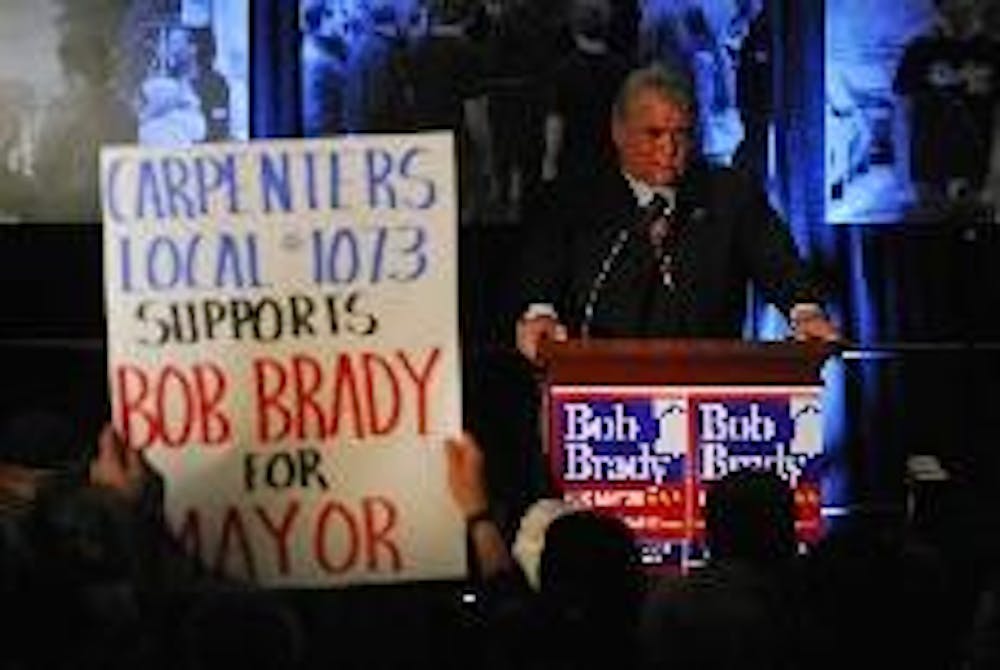It was the biggest non-news event in the mayoral race thus far: Bob Brady is running for mayor.
Long rumored to be a potential contender, Brady officially announced his candidacy at the Convention Center yesterday evening, becoming the fifth and likely final candidate to enter the upcoming Democratic primary.
Brady tried to portray himself as both an experienced hand and as someone who can relate to working-class Philadelphians living in rowhomes.
"Thirty-five years ago in the city of Philadelphia, I was that father" who couldn't feed his family or afford to pay the gas bill, he said, capitalizing on the fact that he is the son of a police officer and "a carpenter by trade."
Even his perspectives on crime - which is shaping up to be the race's No. 1 issue - appear colored by this background.
"I remember waiting until two in the morning for my dad to come home" from patrol, Brady said. "But you don't have to be the son of a cop to understand the impact" of crime statistics on the average Philadelphian.
With last night's announcement, Brady - the Democrat who has represented the eastern half of the city in Congress since 1998 - will finally join the ranks of the other four declared candidates: U.S. Rep. Chaka Fattah (D-Pa.), former Councilman Michael Nutter, state Rep. Dwight Evans (D-Phila.) and businessman Tom Knox.
But Brady, unlike these other candidates, isn't displaying any wonkish inclinations in tackling problems ranging from crime to economic growth, despite his congressional career and 20 years spent as chairman of the city's Democratic Party.
Implicitly criticizing other candidates who have rolled out comprehensive, multi-step initiatives to tackle violent crime, Brady laid out three steps he would take as mayor to reduce the homicide rate: putting 1,000 more police, parole and truancy officers on the streets over four years, providing them with better equipment and creating a cabinet-level position on faith-based initiatives to build community support for anti-crime measures.
He proudly noted this was "not a 25-point plan launching 25 ideas tying up the next police commissioner with 25 campaign promises - just one good idea and the strength and experience to make it happen."
Brady is expected to make this pragmatic approach to politics a centerpiece of his campaign.
He has a "track record of bringing people together," said Kevin Feeley, a former adviser to Gov. Ed Rendell.
Indeed, Brady cited his role in ending a transit and teacher's strike in his speech last night.
And Brady supporters and campaign workers agree with this simpler approach to governing, saying it appeals to working-class Philadelphians.
Evelyn Harvey, who works for Brady in the 61st Ward in the North Philadelphia neighborhood of Olney, called Brady's speech a success because "it made some down-to-earth . projections" for the city's future.
"Complex ideas always have pitfalls," she added.



